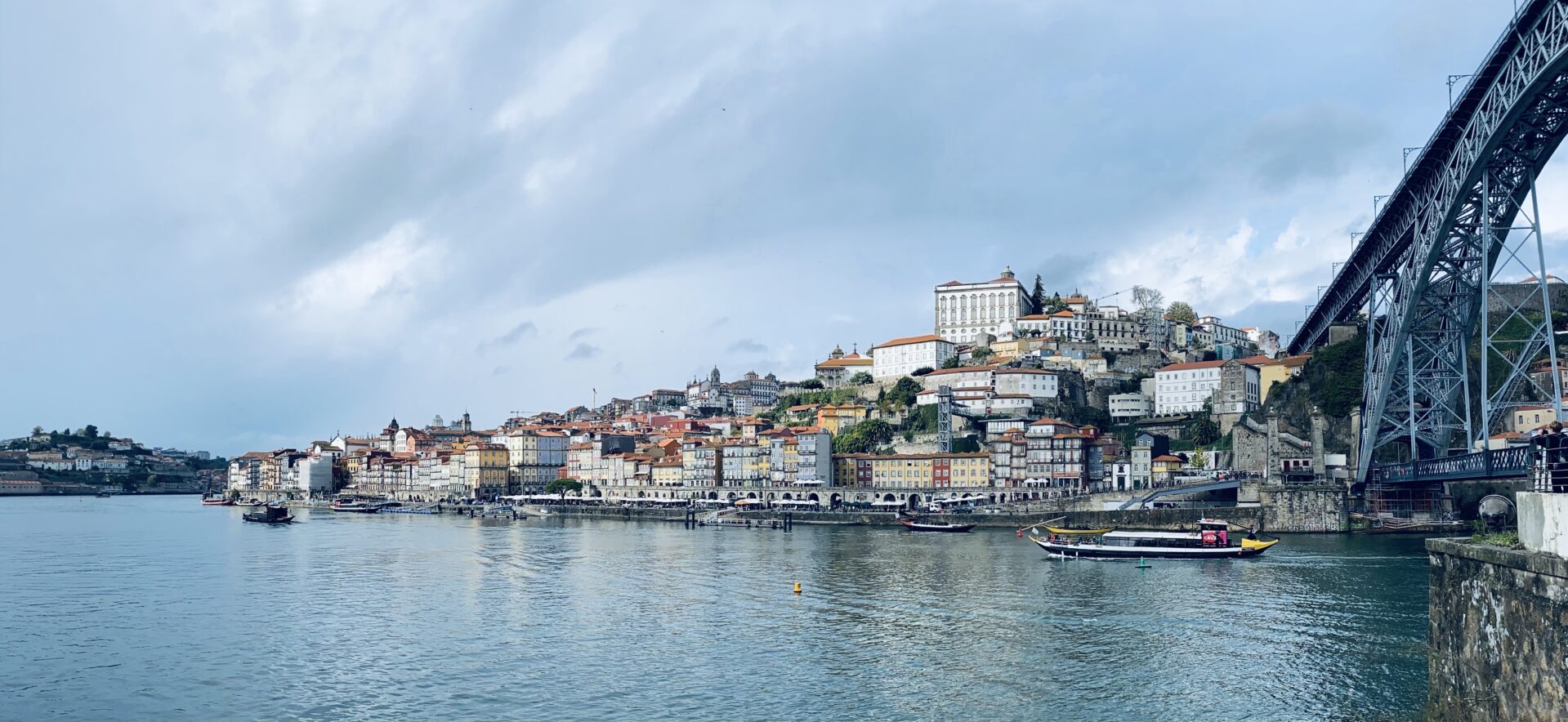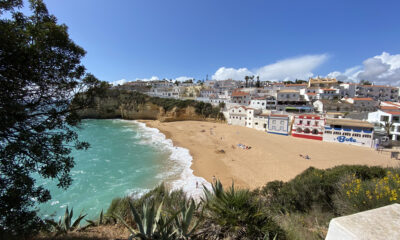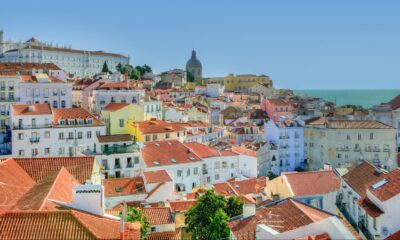Portuguese Remote Work Visas could be your gateway to an enhanced location-independent lifestyle. Whether you are already enjoying the freedom of working remotely or just beginning to explore the possibilities, this comprehensive guide will help you navigate the nuances. We’ll share advanced tips, tools, and strategies to not only optimize your remote work experience in Portugal but also to elevate your contributions to your remote company.

Do you need the visa?
EU/EFTA Nationals
EU/EFTA citizens do not need a visa to enter Portugal. They can stay in Portugal for up to 90 days in any 180-day period. This means that you can visit Portugal for up to three months, twice a year, without needing a visa. If you want to stay in Portugal for longer than 90 days, you will need to request a registration certificate. You can also apply for permanent residency after five years of continuous residence in Portugal.
Non-EU/EFTA Nationals
If you are a non-EU/EFTA national, you will need a visa to visit Portugal for less than three months. However, Portugal has visa-free agreements with 63 countries that are not in the EU but are visa-free, including the United Kingdom, the United States, and Canada. This means that citizens of these countries do not need a visa to visit Portugal for short stays.
If you are a citizen of a country that does not have a visa-free agreement with Portugal, you will need to apply for a visa before you travel. You can apply for a visa at a Portuguese embassy or consulate in your home country.
If you wish to stay in Portugal for longer than three months, you will need to apply for a long-term visa.
Impact of ETIAS
ETIAS stands for European Travel Information and Authorization System. It is a new system that will require citizens of visa-exempt countries to apply for authorization before traveling to the Schengen Area. The ETIAS is a visa waiver system for citizens of countries that do not need a visa to travel to the Schengen Area. European citizens already have visa-free access to the Schengen Area, so they do not need to apply for an ETIAS.
The ETIAS will be introduced in 2024. Travelers can apply online and the application fee will be €7. The ETIAS will be valid for three years or until the passport expires, whichever comes first.
Types of Portuguese Visas
Anyone who needs a visa or wants to stay in Portugal for longer than 90 days, will require one of the long-stay visas, which can be either temporary or for residency authorization purposes. Depending on the duration and the purpose of the stay there are two main types of visas i Portugal:
- Temporary stay visas allow entry and stay in Portugal for less than a year. They are valid during the entire stay and allow for multiple entries.
- Residency visas allow two entries and are valid for a period of 4 months. During that time, the holder of a residency visa is required to request a residency permit with the Immigration and Border Services (SEF).
Portugal has long been a popular destination for digital nomads, but until recently, non-EU/EEA/Swiss citizens who wanted to live and work in Portugal had to obtain a D7 or D2 visa. However, in response to the growing popularity of Portugal among digital nomads, the Portuguese government has created a new visa specifically designed for this group: the D8 visa.
Below we will dive into the following: D7 and D2 visas, which although not designed for remote workers and digital nomads, might be relevant for some. We will also talk about both D8 visas: the Temporary Stay and Temporary Residency Visa.
D7 Passive Income Visa
For a long time, Portugal hasn’t offered a true Digital Nomad Visa so the existing alternative was the D7: Passive Income Visa. That has recently changed with the introduction of the two digital nomad visas: the D8 Temporary Stay and Temporary Residency Visa. In the past, many remote workers have successfully applied for the D7 visa, however, now that the proper Digital Nomad Visa exists, remote workers will be expected to apply for a D8 visa instead of a D7.
That said, D7 might still be an attractive option for anyone who does have a passive income (e.g. dividends, rental income, royalties, and pensions), due to low-income requirements (€760 per month) and an easy application process.
The D7 visa is a temporary residency visa for Portugal that is designed for people who have sufficient passive income to support themselves in Portugal. Passive income can include things like pensions, rental income, or investment income. To qualify for the D7 visa, you must have enough passive income to support yourself and your family in Portugal for at least one year. You must also have a valid passport and a criminal record check.
The specific amount of passive income required to qualify for the D7 visa varies depending on the number of people in your family. For example, if you are single, you must have at least €900 per year of passive income (US$ 10,500). The amount increases for couples and families.
The processing time for the D7 visa is typically up to 60 days but might sometimes take much longer than that. The Portuguese D7 visa is initially valid for 4 months, during which you must apply for a 2-year residence permit after arriving in Portugal. This permit can be renewed after the two years for another 3 years, provided you continue to meet the visa requirements. After five years of legal residency, you may apply for permanent residence or Portuguese citizenship, subject to certain requirements.
- The minimum amount of passive income required to qualify for the D7 visa is €9,120 per year for a single person.
- The passive income must be from a legal source and must be regularly paid.
- The passive income must be sufficient to cover your living expenses in Portugal.
- You must have a valid passport and a criminal record check.
- You must provide proof of accommodation in Portugal.
- You must provide proof of financial solvency.
D2 Entrepreneur Visa
This is probably the least likely visa to would allow remote work i Portugal but it is potentially an option so let’s mention it. The D2 visa is a temporary residence visa for Portugal that is designed for people who have a qualifying business or investment in Portugal. A qualifying business or investment is one that creates jobs or contributes to the Portuguese economy. To qualify for the D2 visa, you must have a valid passport, a criminal record check, and proof of your business or investment.
In terms of the general procedure, the D2 and D7 visas follow similar paths. The processing time for the D2 visa is typically up to 60 days but can take much longer. D2 is also initially valid for 4 months, during which you’re expected to arrive in Portugal and apply for a residence permit. The residence permit is typically granted for 2 years, then can be renewed for three-year periods, and after 5 years can lead to local residence.
- The qualifying business or investment must create at least three jobs in Portugal.
- The business or investment must have a minimum investment of €500,000.
- The business or investment must be registered with the Portuguese government.
- You must have a valid passport and a criminal record check.
- You must provide proof of accommodation in Portugal.
- You must provide proof of financial solvency.
Portuguese Visas For Digital Nomads & Remote Workers
The Temporary Residency Visa allows you to stay for up to five years and is great for remote workers who want to explore Portugal for a bit longer, plus it also allows the possibility of renewal or exchange for permanent residency afterward. The Temporary Stay Visa allows you to stay in Portugal for up to one year, and it’s perfect for digital nomads who want to experience the Portuguese lifestyle for a short period of time.
D8 Temporary Stay Visa
The D8 Temporary Stay Visa is a one-year visa that allows digital nomads, freelancers, and remote workers to live and work in Portugal. To qualify for the D8 Temporary Stay Visa, applicants must meet the following requirements:
- Have a valid contract with a foreign company that allows them to work remotely.
- Have sufficient financial resources to support themselves in Portugal.
- Have a valid passport and a criminal record check.
- Provide proof of accommodation in Portugal.
The D8 Temporary Stay Visa can be renewed for up to two years. After two years, you can apply for a D8 Temporary Residence Visa.
D8 Temporary Residence Visa
- Allows digital nomads, freelancers, and remote workers to live and work in Portugal for up to one year.
- Applicants must have a valid contract with a foreign company that allows them to work remotely.
- Applicants must have regular sufficient foreign income to support themselves in Portugal.
- Applicants must have a valid passport and a criminal record check.
- Applicants must provide proof of accommodation in Portugal.
- The visa is valid for one year, and it can be renewed for up to two years.
- Allows digital nomads, freelancers, and remote workers to live and work in Portugal for up to 2 years.
- Applicants must have a valid contract with a foreign company that allows them to work remotely.
- Applicants must have regular sufficient foreign income to support themselves in Portugal.
- Applicants must have a valid passport and a criminal record check.
- Applicants must provide proof of accommodation in Portugal.
- The visa is valid for 2 years and it can be extended by another 3 years to up to 5 years in total
Final thoughts
The D7, D2, and D8 visas are all options for non-EU citizens who want to live in Portugal. The D7 visa is also known as the Passive Income Visa and is aimed at retirees or those with a passive income such as a pension or income from a rental property. The D8 visa, also known as the Digital Nomad Visa, is aimed at those who earn an income from abroad through a salary from a remote job or through freelancing. Until recently, digital nomads and remote workers used the D7 Passive Income Visa or D2 Entrepreneur Visa to gain residency in Portugal. But at the end of October 2022, Portugal introduced two new D8 digital nomad visa options specifically targeted toward remote workers who want to live in Portugal while earning money from outside of the country.
- Quiz – was this article helpful? Please take a moment to answer 5 quick Questions.
- Ask A Question – confused about taxes? Join our Facebook Community & Ask A Question.
- Feedback – we are only humans, so if you see anything missing/incorrect, please let us know.
NEWSLETTER
No Spam, Just Updates!
FOLLOW US
DIGITAL NOMAD VISAS
















